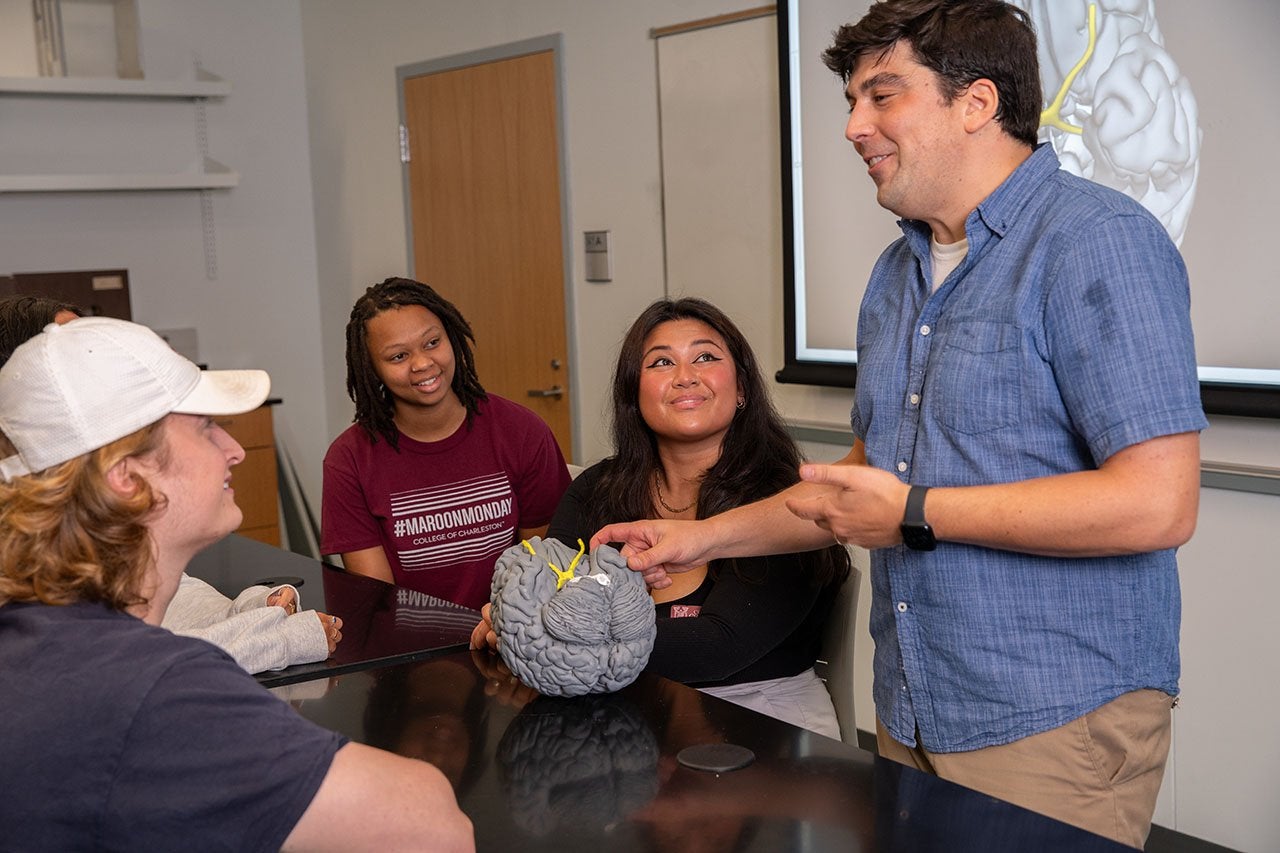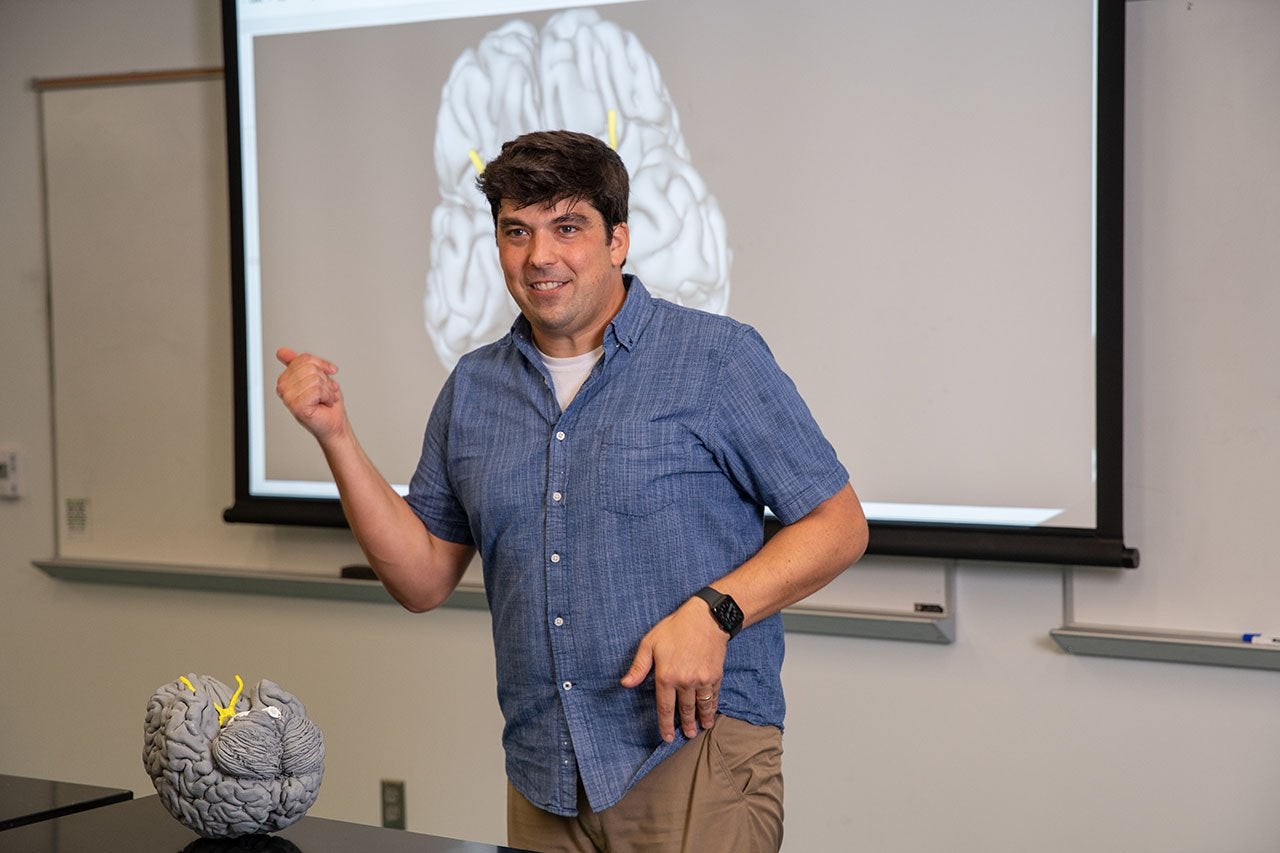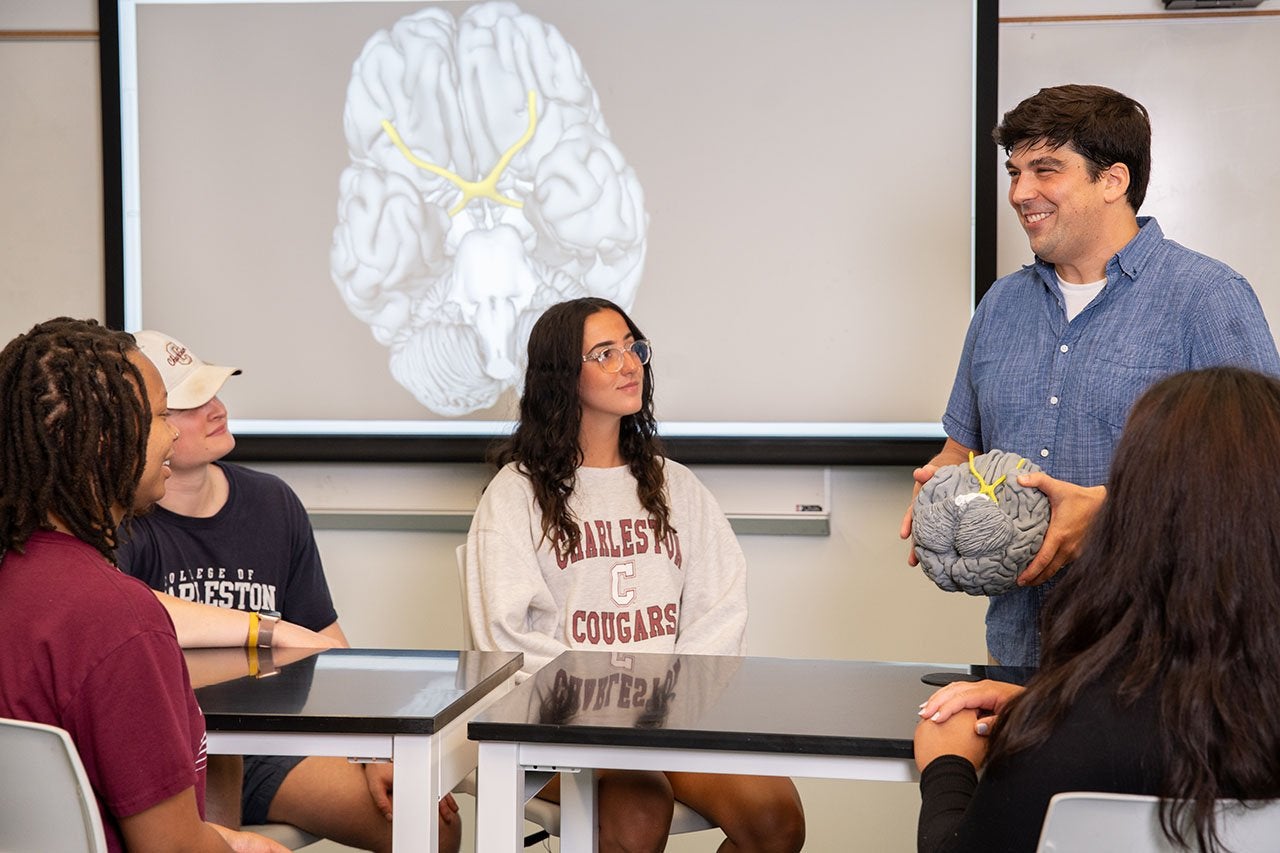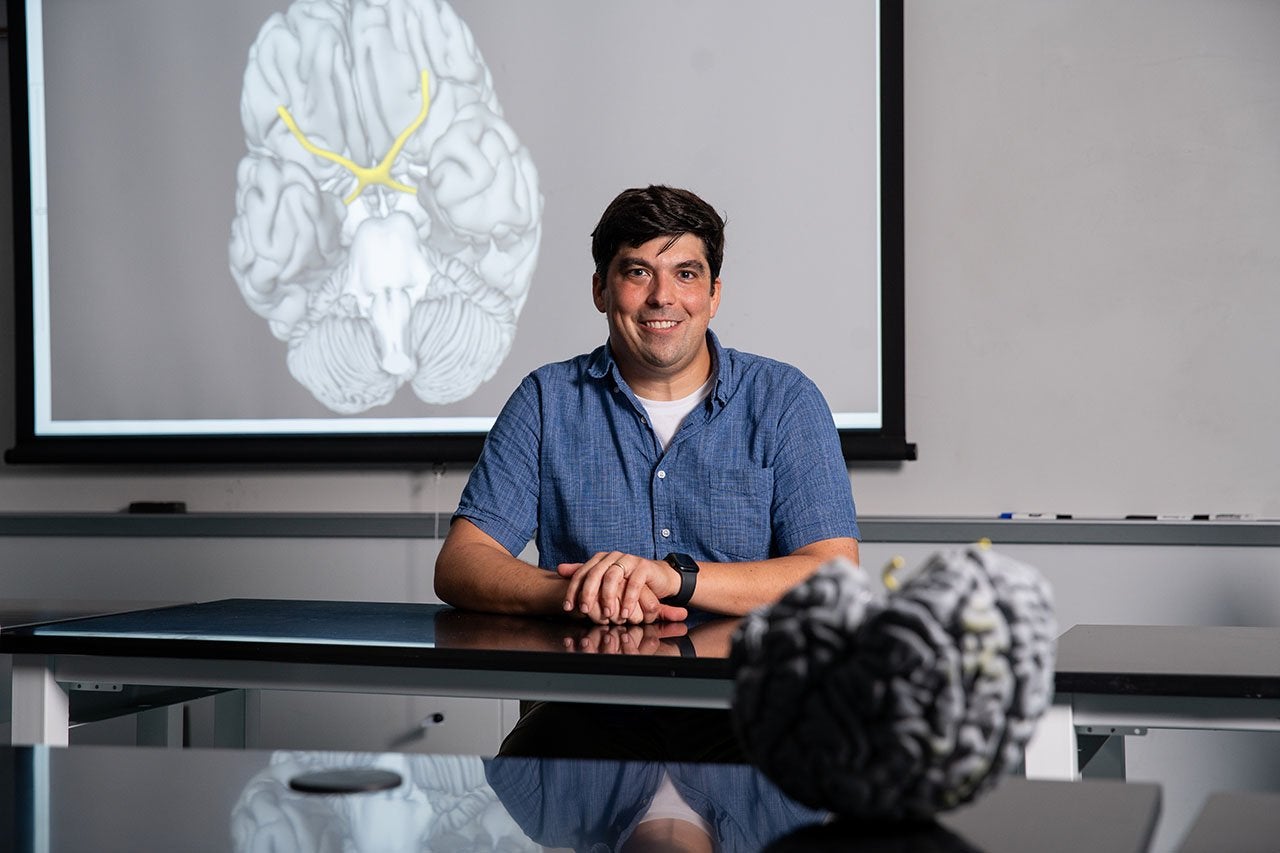Nicholas Hindy has been trying to figure out a tough brain teaser.
Hindy, a College of Charleston psychology professor who has been teaching behavioral neuroscience and research methods for years, has been searching for the best method to help students to better understand the anatomy of the brain and nervous system.
He finally discovered the perfect solution. He calls it Build-A-Brain.
Hindy has been awarded a grant from the National Science Foundation to develop an open-source, web-based platform for neuroanatomy instruction in neuroscience courses. The program allows students to see and understand relationships between the different parts of the brain (the gray matter) and the fiber tracts (the white matter) that connect them. This new digital platform is expected to transform neuroscience education from focusing on individual brain structures to understanding neural networks and connections.
“Students will see 100 different brain structures that are within the program and select all of the structures that they want to learn,” says Hindy. “It will automatically show them how these structures are connected with each other, their functions and what the clinical applications are associated with those connections.”
He hopes to eventually link this technology with every current neuroscience textbook. He believes this will help students better understand the selected structures mentioned in the textbook chapters.
Psychology major Hannah Fabrigar is one of dozens of College of Charleston undergraduate students to work with Hindy to develop this program as part of his research methods and behavioral neuroscience courses. Fabrigar continues to be involved in this research because she wants to further her understanding of the brain and its many pathways.
“I am excited to see the results of this project and to see future students learn and love the software,” she says.
The $400,000 grant marks a collaboration between the College of Charleston Department of Psychology and the Department of Computer Science. Psychology professor Anthony Bishara and computer science professor Ellie Lovellette will also team up with Hindy on the grant.
Hindy hopes to have Build-A-Brain available for open-source testing in the spring of 2024.








